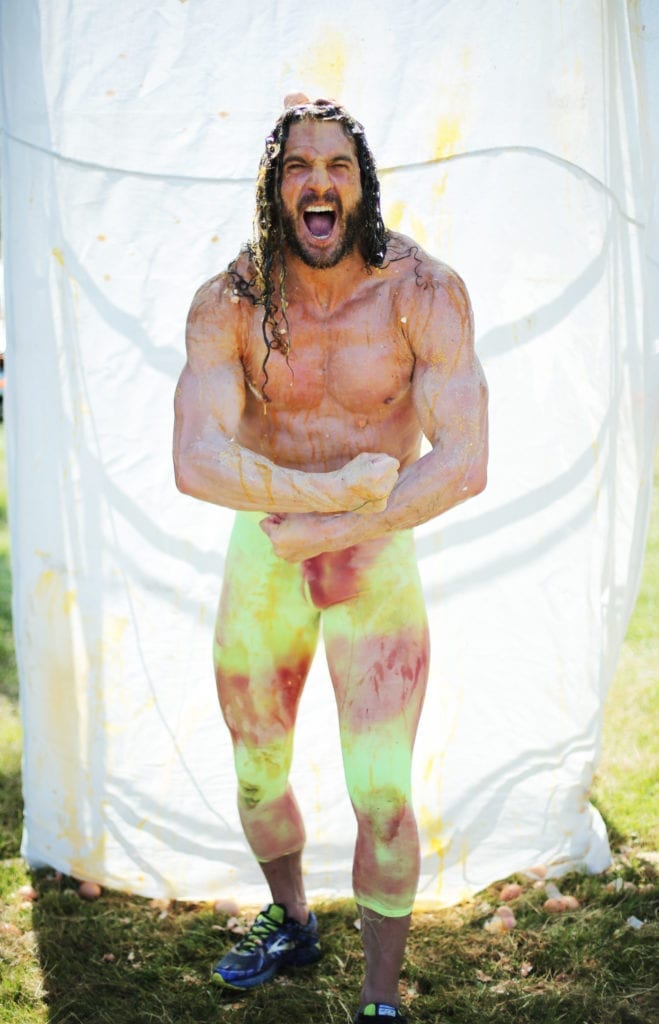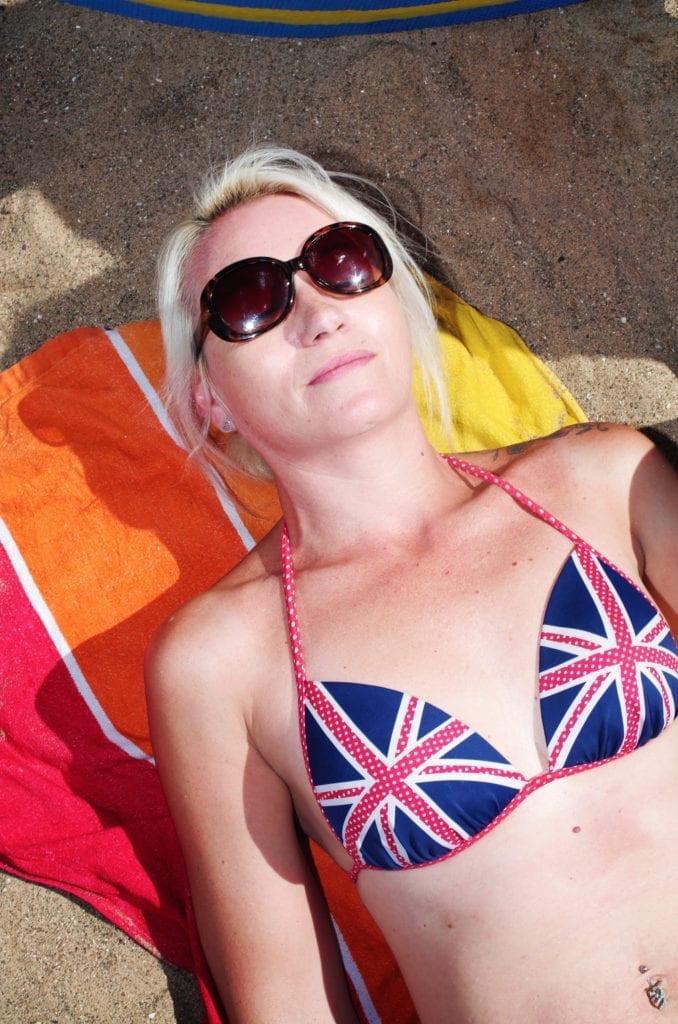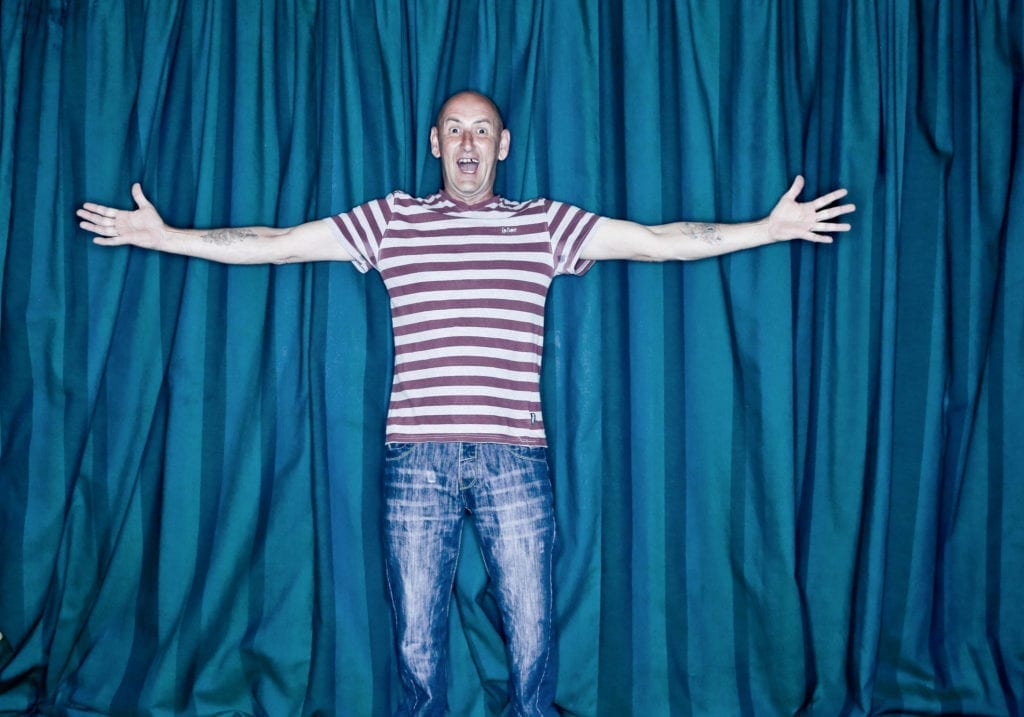Documentary photographer Danyelle Rolla is proud of her roots. That much is clear from her portfolio, which reads like a guide to working-class Britain. Rolla grew up in Norris Green, one of Liverpool’s poorest towns – the type of town, she says, that the press misrepresents as a hotbed of crime and social decay. Out of frustration at this, Rolla has made it her mission to rewrite the narrative of the people and places that have shaped her, by photographing them in a more flattering light.
The photograph that won Rolla Portrait of Britain 2018 captures Dotty, an older resident of Norris Green, Liverpool, outside the local pub. She is sporting a perm that might be from the Eighties, with shoulder pads to match. In fact, many of the scenes that Rolla photographs could be from other eras: from kitsch village fetes, to groups of skinheads in bomber jackets. In her playful, sometimes garish, images, she captures a Britain that seems to be longing for the past.
This is the same Britain, Rolla’s photographs suggest, that voted for Brexit – a topic that is never far from her work. In her ongoing project Declaration of Independence, she photographs the residents of Boston and Skegness – the constituencies with the highest rates of leave votes in the UK – to better understand what Brexit means to them. We spoke to Rolla about photographing a divided country, and why Portrait of Britain is more relevant now than ever.
What did you want to capture about your subject and modern Britain with your Portrait of Britain 2018 winning image?
My image, Dolly, was taken outside a local pub in my hometown of Norris Green, Liverpool. I took pictures because I was disheartened by the press coverage of the area. It started when I was trying to show a friend where I am from; I put Norris Green into a search engine and the images that came up were all mugshots, or pictures of abandoned housing and crime scenes.
This infuriated me, because the area is so much more than that. There are so many glamorous, interesting characters that live there, and I wanted to balance the biased imagery and empower the people in the community.
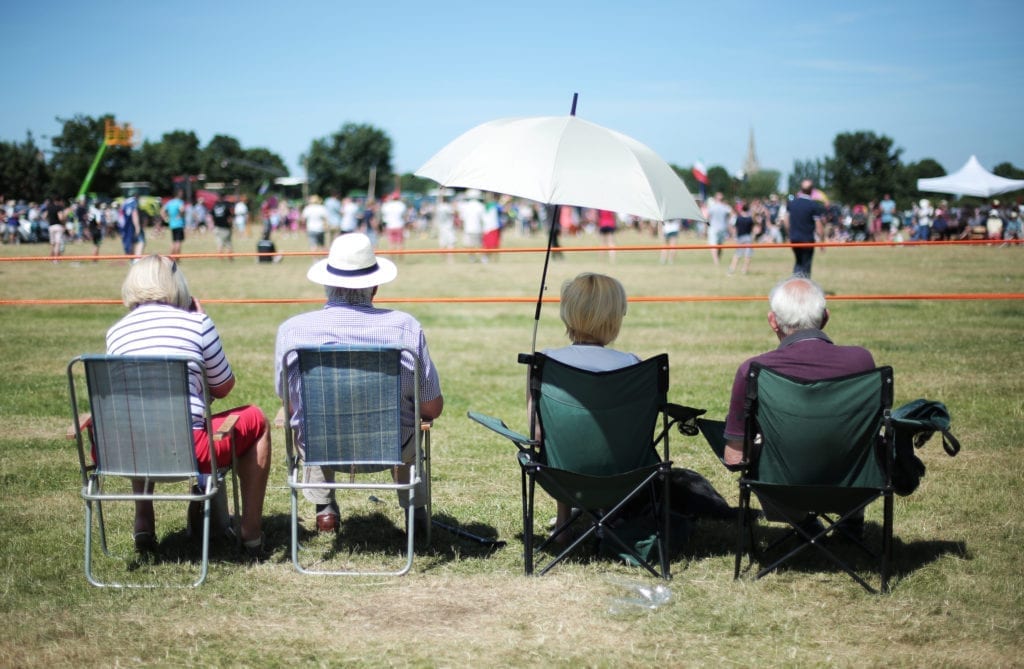
Your series The Declaration of Independence focuses on Britain’s most Eurosceptic constituencies, Boston and Skegness. What made you want to document these places?
I find Brexit fascinating. I have witnessed first-hand the effects that being an EU member state has had on working-class communities, so I understand why people voted to leave. But what I do not like is the bitterness that has remained after the referendum. The escalation in hate crimes, increasing popularity of far-right groups, and the rise of nationalism scare me. I am documenting Boston in the hope that I can present an alternative narrative. I want to give an insight into how and why we find ourselves in this current political landscape.
What I am witnessing from doing this project is that tensions between social classes are becoming more fraught, like they were in 1980s Thatcherite Britain. One middle-class participant I spoke to about the project told me, “I don’t think [working-class voters] should have been allowed to vote in the referendum because they do not have the intelligence level to understand it”.
It is both fascinating and deeply troubling to document. I have never been an objective photographer; I don’t believe such a thing exists. The Declaration of Independence is as much about me trying to understand issues surrounding national identity as it is about documenting Brexit as it continues to unfold.
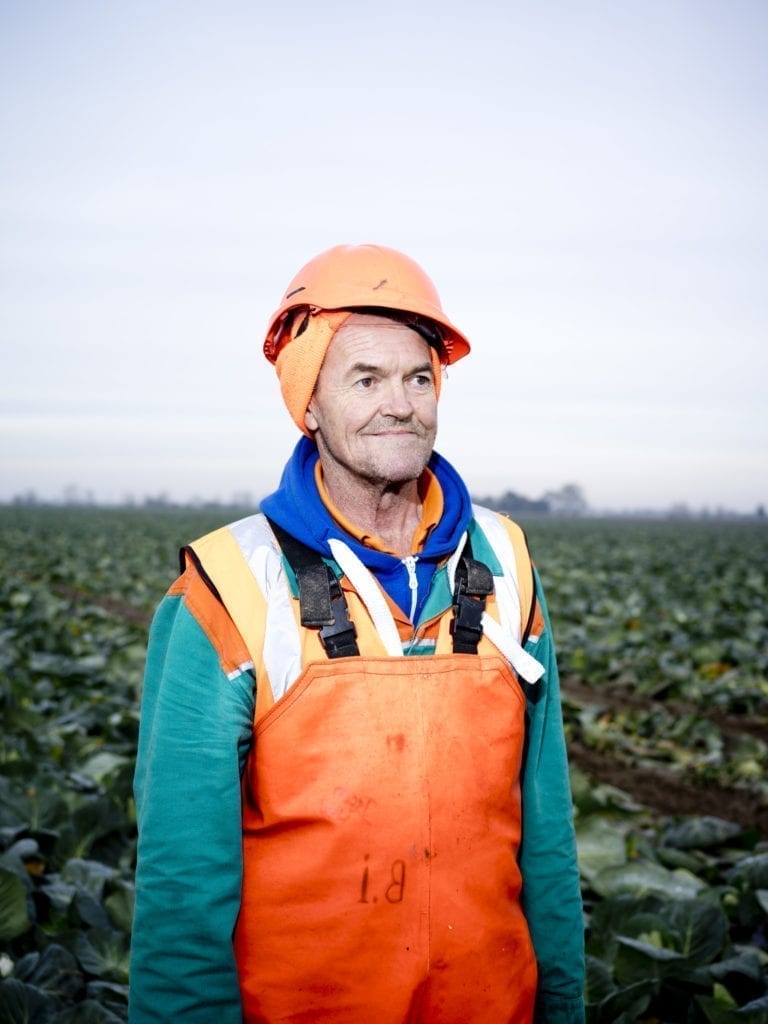
Why do you think Portrait of Britain is important today?
Questions surrounding identity in Britain are incredibly important today. Brexit has demonstrated that the country is split. Tensions surrounding race and class, and the rise of nationalism, need to be showcased to promote discussions about the discord the nation is feeling.
What was it like to win Portrait of Britain?
Hearing the news that I had won was very exciting. Getting my work published and promoted through the British Journal of Photography social media channels was a first for me. I will definitely be entering again this year!
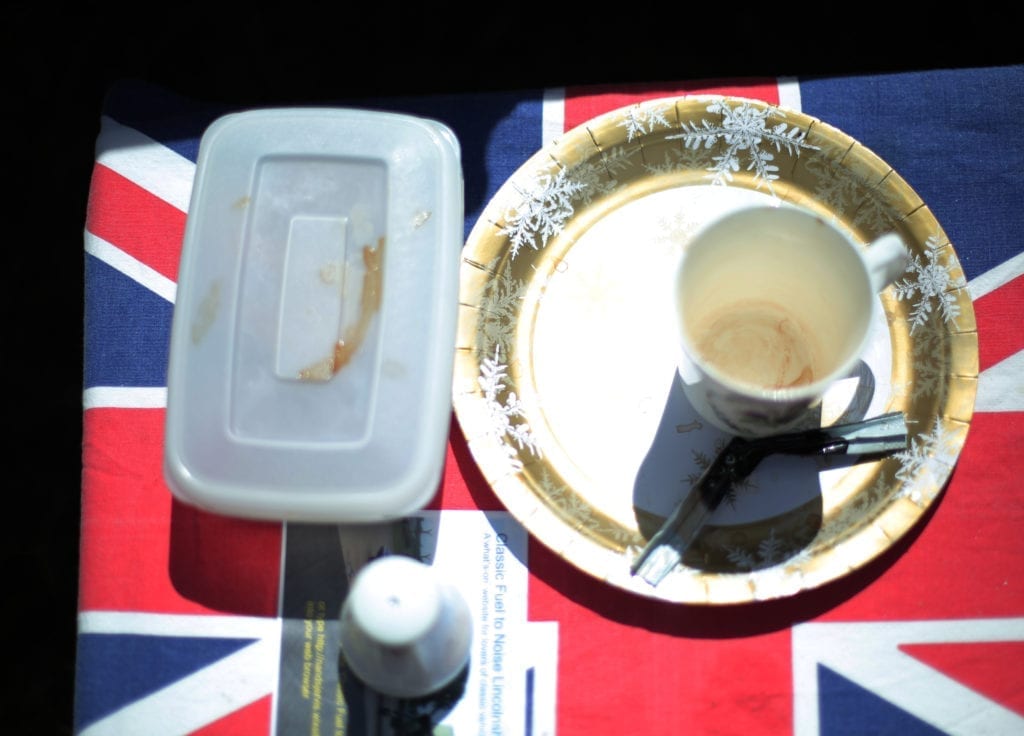
What have you been doing since you won? How has the award boosted your career?
Since winning Portrait of Britain, I have been nominated for the Royal Photographic Society’s Hundred Heroines campaign, and I was one of the artists selected to be part of the 209 Women Exhibition, a 2018 initiative, marking the centenary of women gaining the right to sit in Parliament, by inviting female photographers to take portraits of the 209 current female MPs.
What advice would you give to someone thinking of entering Portrait of Britain 2019?
Do it! You cannot win unless your work is seen, and who knows what that could lead to?
Future generations will look to Portrait of Britain to see the face of the nation in a historic moment. What will it look like? Portrait of Britian 2020 opens 28 March 2020
